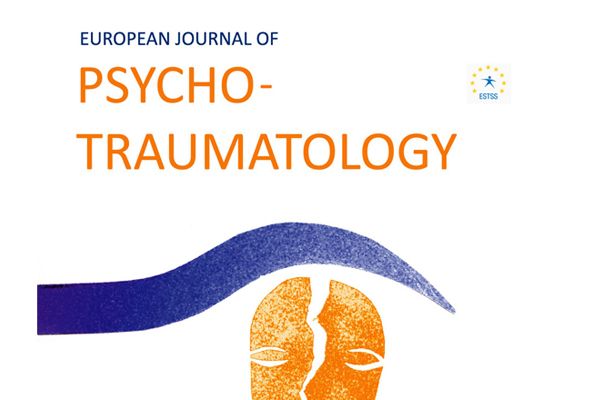19 juni 2020
European Journal of Psychotraumatology
Sinha Engel, Mirjam van Zuiden, Jessie. L. Frijling , Saskia B. J. Koch , Laura Nawijn , Rinde L. W. Yildiz , Sarah Schumacher, Christine Knaevelsrud, Jos A. Bosch , Dick J. Veltman & Miranda Olff
https://doi.org/10.1080/20008198.2020.1761622
Background: Efficient prevention of posttraumatic stress disorder (PTSD) needs to target individuals with an increased risk for adverse outcome after trauma. Prognostic or prescriptive biological markers assessed early posttrauma may inform personalized treatment recommendations.
Objective: To test prognostic and prescriptive effects of early (posttraumatic) autonomic and endocrine markers on PTSD symptom development.
Method: Autonomic and endocrine markers were assessed within 12 days posttrauma and before treatment initiation within a randomized placebo-controlled trial investigating repeated oxytocin administration as preventive intervention for PTSD. Linear mixed effects models were used to test the effects of heart rate (variability), resting cortisol, morning cortisol and cortisol awakening response (CAR), cortisol suppression by dexamethasone and resting oxytocin on PTSD symptoms 1.5, 3 and 6 months posttrauma in men (n=54), women using hormonal contraception (n=27) and cycling women (n=19).
Results: We found significant prognostic effects of resting oxytocin and cortisol suppression. In women using hormonal contraception, higher oxytocin was associated with higher PTSD symptoms across follow-up. Stronger cortisol suppression by dexamethasone, reflecting increased glucocorticoid receptor feedback sensitivity, was associated with lower PTSD symptoms across follow-up in men, but with higher symptoms at 1.5 months in women using hormonal contraception. These effects were independent of treatment condition. No further significant prognostic or prescriptive effects were detected.
Conclusion: Our exploratory study indicates that resting oxytocin and glucocorticoid receptor feedback sensitivity early posttrauma are associated with subsequent PTSD symptom severity. Notably, prognostic effects depended on sex and hormonal contraception use, emphasizing the necessity to consider these factors in biomedical PTSD research.
Keywords: biomarker;; prevention; prognosis; glucocorticoids; oxytocin; heart rate
Received 15 Jan 2020, Accepted 13 Apr 2020, Published online: 08 Jun 2020

Het European Journal of Psychotraumatology (EJPT) is een peer-reviewed, interdisciplinair wetenschappelijk tijdschrift dat deel uitmaakt van de European Society for Traumatic Stress Studies (ESTSS).
Het EJPT heeft als doel om wetenschappers, behandelaren en experts te betrekken bij de belangrijkste vraagstukken rond stress en trauma, waaronder individuele gebeurtenissen, herhaalde of chronische trauma's, grootschalige rampen en geweld.

